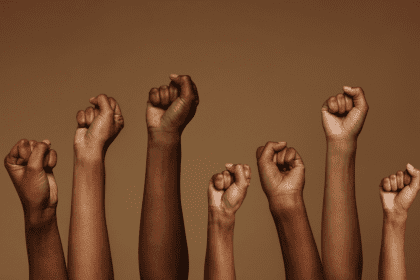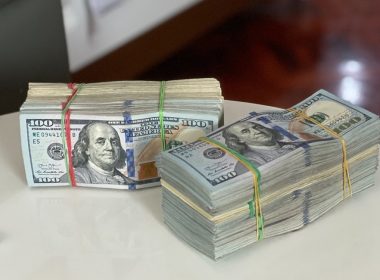 The United States will probably lose its AAA credit rating from at least one major rating agency according to predictions by many economists as a result of waiting so late to raise the debt ceiling. This has already had a negative impact on our economy, but what will be the impact of a downgrade of the U.S. Treasury debt by Moody’s and Standard & Poor’s (both are credit rating services) at the level of the average individual?
The United States will probably lose its AAA credit rating from at least one major rating agency according to predictions by many economists as a result of waiting so late to raise the debt ceiling. This has already had a negative impact on our economy, but what will be the impact of a downgrade of the U.S. Treasury debt by Moody’s and Standard & Poor’s (both are credit rating services) at the level of the average individual?
If history is any indication, African Americans will be hit the hardest in light of recent reports of how the economic recession has impacted our community. There may even be a new recession in the coming year. Although it is hard to measure the intangibles like international prestige, the reduced confidence of the dollar would most likely stop all economic growth — growth that has yet to hit the African American community, even though experts say the recession ended two years ago. If the rating is lowered, there would be a massive sell off billions of dollars of U.S. bonds currently held by individuals and nations around the globe. This would result in a potential increase in interest rates on everything from credit cards, to mortgages and automobile loans.
A reduced rating could mean a 2 percent increase on a fixed-rate mortgage. Meaning, an increase of about $125 a month on a mortgage for a $150,000 home at 4.5 percent interest. Unfortunately, most African American families, due to redlining practices of the past few decades, have adjustable rate mortgages (ARMS). There are 15 million Americans with ARMs, a large majority of which are minorities. The increase in interest for ARMs will have an even more devastating impact on the pockets of African Americans.
When Japan had its credit downgraded in from AA to AA-minus in January, the yen fell compared with other major currencies, and it increased the cost of insuring debt it held from other countries. This took away from money available to provide jobs. Thus, any variable rate borrowing ranging from an unpaid credit card balance, to private college loans, would likely rise in concert with any move that pushes the prime rate higher.
For those with jobs, if a AAA country was downgraded to AA, it is possible that all companies rated A+ or above could be downgraded. Being employed by such a company that is downgraded means that they will not be able to roll over the bonds they issue for a profit. As a result, they will have to seek bank credit lines, and if they cannot secure extended credit, jobs will be gone.
It can only get worse for African Americans, who since 2005 have recorded the highest unemployment rate at 16.2 percent and a wealth reduction of 53 percent from $12,124 to $5,677. The impact of a downgrade in the United States’ credit rating is real and not some invisible concept. It will have negative implications for African Americans. Believe it. –torrance stephens, ph.d.














